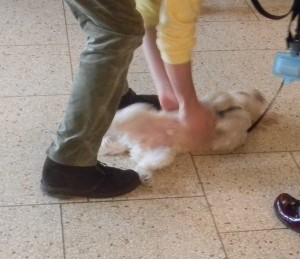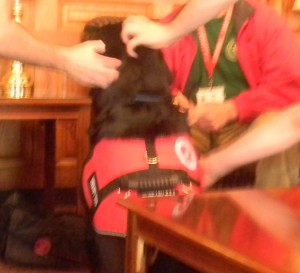The Cornell Law Library is pleased to announce the 2013 recipients of The Cornell Law Library Prize for Exemplary Student Research:
First Place: Libor Integrity and Holistic Domestic Enforcement, by Milson C. Yu, 3L
 Milson Yu crafted a coherent and well-written note embracing a complex and wide range of sources. He looked at the history and methodology of the London Interbank Offered Rate (Libor), an estimate of the cost of short-term borrowing for large London banks; examined the limits of the Commodity Futures Trading Commission’s enforcement authority in the context of rigging Libor; and outlined “a two-part plan to engage the CFTC in active oversight and enforcement of Libor.” His sources included a sophisticated collection of unpublished private reports, administrative regulations, decisions, and reports, briefs and orders from federal litigation, federal case and statutory law, legislative history materials, and articles and empirical studies in law reviews and business journals, among other sources.
Milson Yu crafted a coherent and well-written note embracing a complex and wide range of sources. He looked at the history and methodology of the London Interbank Offered Rate (Libor), an estimate of the cost of short-term borrowing for large London banks; examined the limits of the Commodity Futures Trading Commission’s enforcement authority in the context of rigging Libor; and outlined “a two-part plan to engage the CFTC in active oversight and enforcement of Libor.” His sources included a sophisticated collection of unpublished private reports, administrative regulations, decisions, and reports, briefs and orders from federal litigation, federal case and statutory law, legislative history materials, and articles and empirical studies in law reviews and business journals, among other sources.
Through extended research into his area of interest, Milson discovered that advanced research techniques such as combining search terms with Boolean connectors and tracking updates to his research significantly improved his search results.
Second Place: How to Kill Copyright: A Brute-Force Approach to Content Creation, by Kirk Sigmon, 3L
 Kirk Sigmon’s idea and research were quite original; he wove a collection of very different sources together for an interesting thought experiment. In the course of examining the topic of copyrightable content randomly generated by computer, he drew on both research in computer science and a mix of primary and secondary legal sources to support his discussion of whether copyrightable content could be generated, whether the content would be amenable to copyright, and the legal ramifications of generating this content.
Kirk Sigmon’s idea and research were quite original; he wove a collection of very different sources together for an interesting thought experiment. In the course of examining the topic of copyrightable content randomly generated by computer, he drew on both research in computer science and a mix of primary and secondary legal sources to support his discussion of whether copyrightable content could be generated, whether the content would be amenable to copyright, and the legal ramifications of generating this content.
Kirk comments about his paper: “It is a fusion of cryptanalytic science, computer science, and intellectual property law – a sort of hybrid that does not easily lend itself to research in a standard library. But that was what made it a fun paper to write.”
A review panel comprised of Librarians Amy Emerson, Matt Morrison, Nina Scholtz, and Carissa Vogel selected the winners from among 19 competitive entries.
Funding for the Prize is provided by an endowment given to the Law Library by Barbara Cantwell in honor of her late husband, Robert Cantwell, a 1956 graduate of Cornell Law School.
In addition to receiving a monetary award, the winners are also invited to publish their papers in Scholarship@Cornell Law, the Law Library’s digital repository, and to feature their papers in Reading Room displays.
 As our readers know, at exam time each semester we offer a pet visitation event. Our pet guests come to us courtesy of Cornell Companions, a pet visitation service sponsored by Cornell’s College of Veterinary Medicine. The Cornell Companions program operates on a volunteer basis at no charge to the facilities and institutions its pets visit.
As our readers know, at exam time each semester we offer a pet visitation event. Our pet guests come to us courtesy of Cornell Companions, a pet visitation service sponsored by Cornell’s College of Veterinary Medicine. The Cornell Companions program operates on a volunteer basis at no charge to the facilities and institutions its pets visit.






